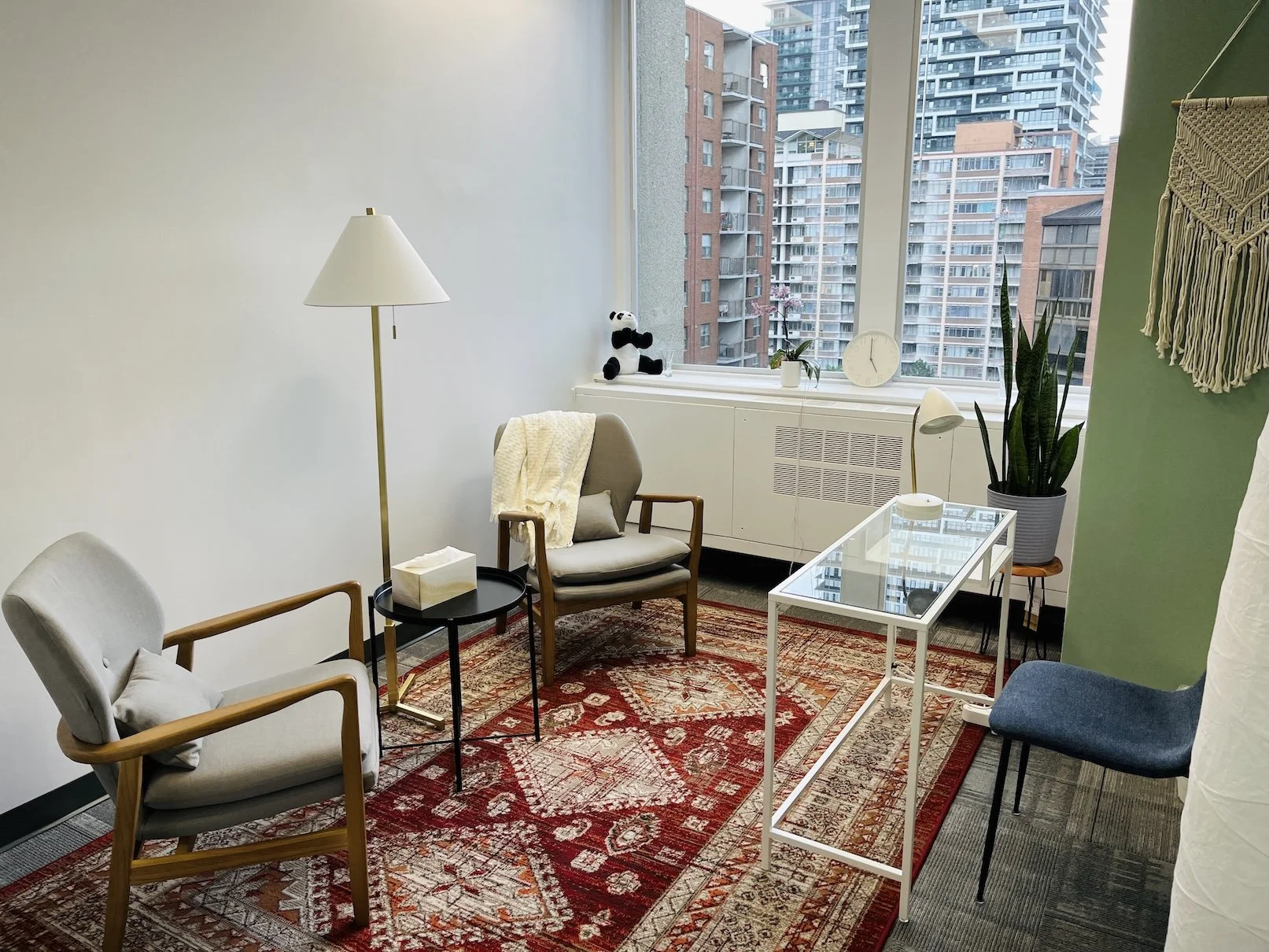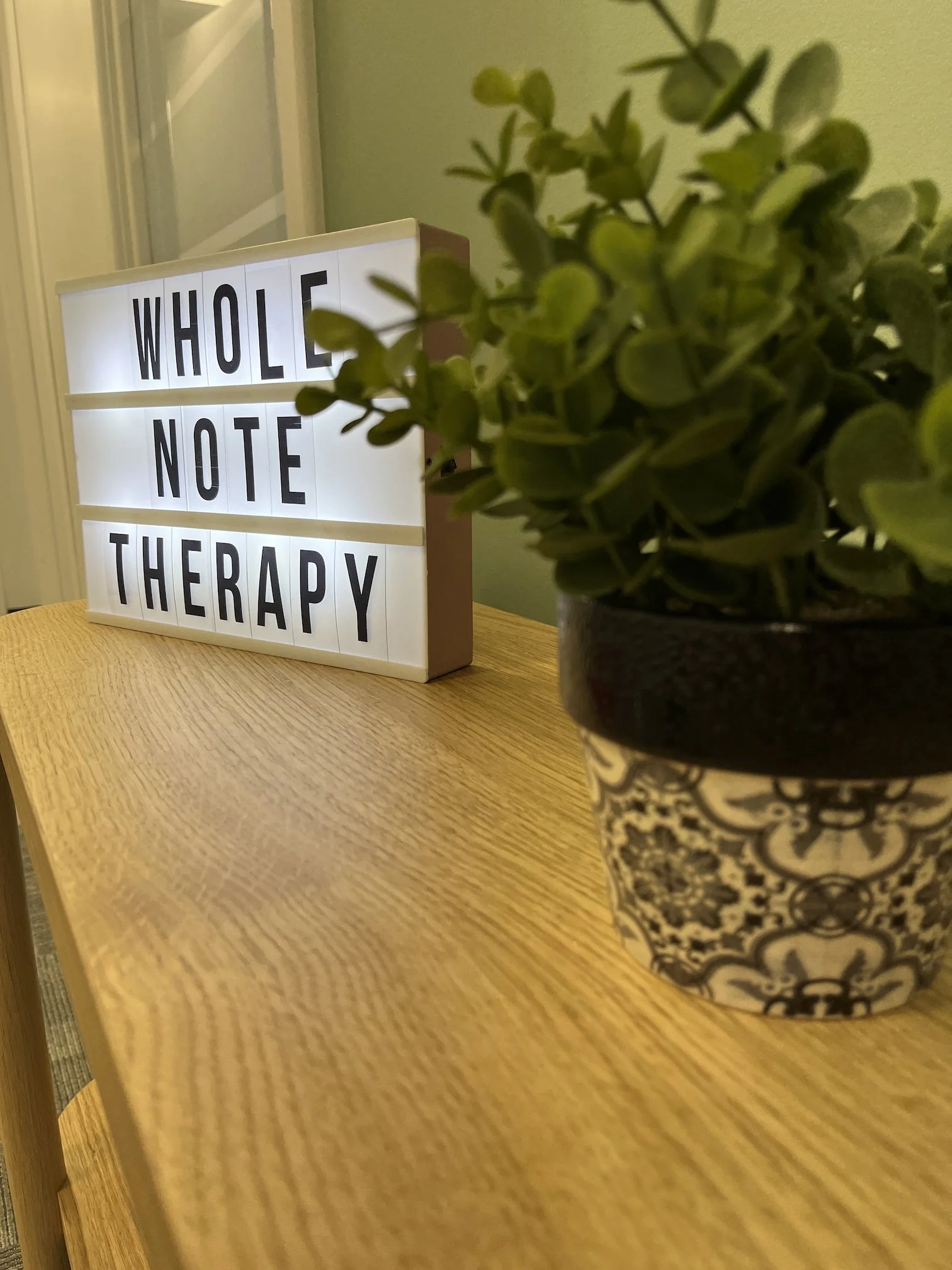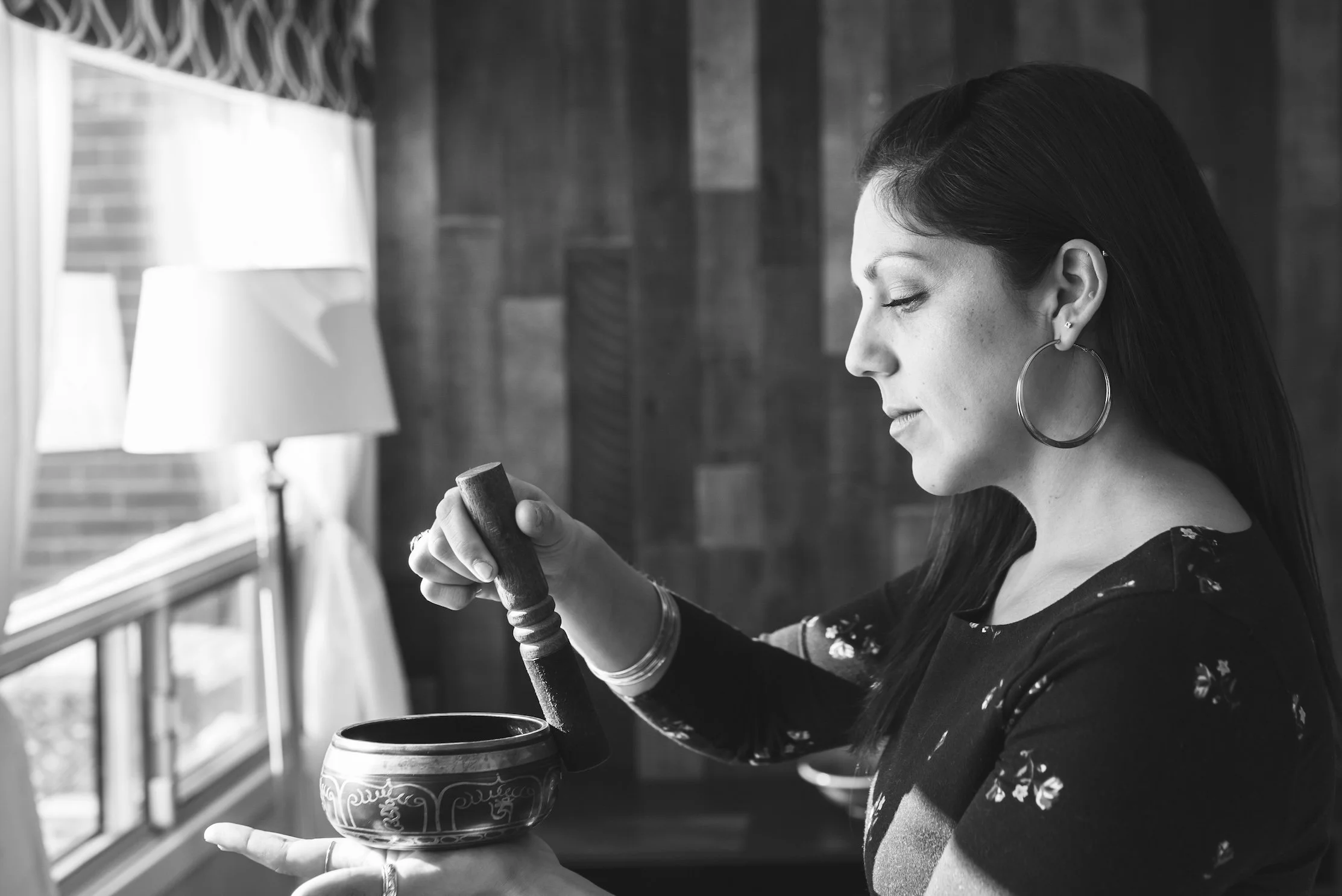Psychotherapy
Psychotherapy at Whole Note Psychotherapy in Toronto is a collaborative, personalized process that explores thoughts, feelings, and behaviors to promote mental wellness. It addresses issues like anxiety, depression, stress, grief, trauma, and relationships. Therapy offers a safe space to express emotions, gain insight, and develop coping skills, fostering personal growth and better emotional regulation.
Benefits include increased self-awareness, improved communication, symptom relief, and greater resilience, enhancing decision-making and relationships. Whole Note integrates talk therapy with music therapy techniques to deepen emotional healing in a confidential, supportive setting, paced to each client’s needs.
This holistic approach supports mental, emotional, and relational health, helping clients achieve a balanced, fulfilling life.
Psychotherapy sessions are available for individuals (adults, children, adolescents and young adults), as well as group sessions.
Who We Serve
Anxiety Management
Depression and Mood Management
Chronic Illness
Life Transitions
Advanced Illness
Grief, Loss, and Bereavement
Stress Management
Our Approaches to Psychotherapy.
We draw from a number of psychotherapy styles and practices in order to create a personalized experience to support you in reaching your therapy goals.
-
Acceptance and Commitment Therapy, also referred to as “ACT”, is a values-based approach that is rooted in principles of mindfulness and action related to addressing (and not avoiding) uncomfortable feelings, thoughts, and life circumstances. This style of therapy encourages clients to be flexible in their approach to their thoughts and experiences, and supports clients in taking specific action through techniques which can support positive and healthy change.
-
Cognitive behavioral therapy (CBT) is a common type of talk therapy (psychotherapy). You work with a mental health counselor (psychotherapist or therapist) in a structured way, attending a limited number of sessions. CBT helps you become aware of inaccurate or negative thinking so you can view challenging situations more clearly and respond to them in a more effective way.
CBT can be a very helpful tool — either alone or in combination with other therapies — in treating mental health disorders, such as depression, post-traumatic stress disorder (PTSD) or an eating disorder. But not everyone who benefits from CBT has a mental health condition. CBT can be an effective tool to help anyone learn how to better manage stressful life situations.
-
Attachment-focused therapy is an approach that is based on attachment theory, and explores specific thoughts, feelings, communications, behaviors, and exchanges that you may have learned either to suppress and avoid or to amplify because of early childhood attachment experiences with people in your life. Exploring your early attachments and relationship dynamics through attachment focused therapy can offer insight into your current relationships and coping styles.
-
Emotionally Focused Therapy (EFT) is a humanistic, evidence-based approach to psychotherapy, drawing primarily from attachment theory to facilitate the creation of secure, vibrant connection with self and others. Rooted in the science of emotions and attachment, EFT helps clients identify and transform the negative processing and interaction patterns that create distress. It’s effective in treating individuals (EFIT), couples (EFCT), and families (EFFT), addressing a wide range of issues from marital distress to individual anxiety and trauma.
For therapists, EFT offers a clear, structured path to helping clients. It focuses on the development of emotional intelligence and awareness, enabling therapists to guide clients in recognizing and expressing their emotional needs more effectively. By fostering a secure attachment bond, EFT enables clients to respond to their partners and family members in healthier, more constructive ways.
-
Psychodynamic psychotherapy is based on principles of psychoanalytic practice, and can be used as an opportunity to explore your relationship to the world and to your experiences in a self-reflective way. This style of therapy is often verbal in nature but your therapist may use non-verbal or arts-based techniques to support you in uncovering aspects of yourself that may be both conscious and subconscious.
-
Mindfulness practices have roots in Buddhist philosophy and focus primarily on maintaining awareness of the present moment, particularly our own thoughts, actions, and feelings.The heart of mindfulness encourages a non-judgemental approach to noticing our present experiences, and a focus on conscious awareness. Mindfulness practices have been studied in depth and been have shown to promote and enhance physical and mental health and well-being.
-
Music therapy is an evidence-based psychotherapeutic approach that integrates elements of music into a comprehensive model of care to support treatment goals, and optimize wellness. Music can impact and affect us in deeply therapeutic ways, as music is a powerful tool for self-expression and connection. Certified Music Therapists (MTAs) are trained to incorporate various aspects of music into a model of care that supports physical, emotional, cognitive, and spiritual well-being.
15-Minute Free Consultation
-
Connect with one of our team members to determine the right approach for you at this time. Your 15-minute consult is an opportunity to:
-Meet your practitioner and discuss your issues
-Test out the technology if you are planning on receiving virtual therapy
-Discuss a treatment plan moving forward
Your consultation is not a formal therapy session. Following your consultation, you can book your first appointment.
-
To book a free 15-minute virtual consultation, please use the link below. We will be in touch with you directly to schedule your consultation.
-
No formal preparation is required prior to your 15 minute consultation, but please feel free to bring any questions, thoughts, or ideas you may have, and your therapist will be pleased to discuss these with you.
-
If you would like to begin working with your therapist, you can book at your convenience through Jane.app, which you will have access to after your initial consultation. We will email you an intake form which you can fill out prior to your session. We look forward to working with you!





